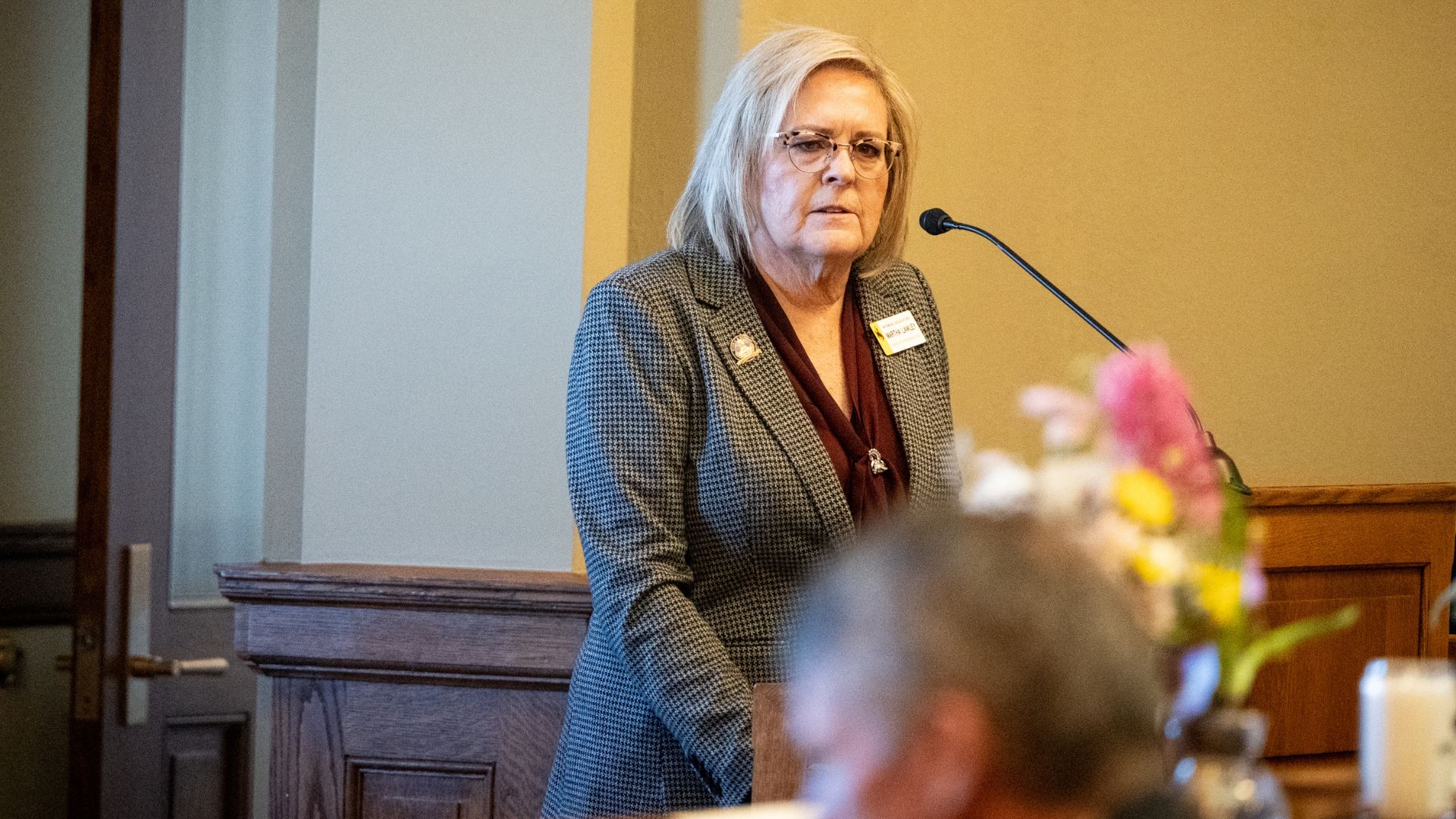Bill prohibiting transgender people from ‘women-only’ spaces advances

Representative Martha Lawley, R-Worland, speaks during the morning session of the 68th Wyoming Legislature January 27, 2025 in the House Chambers. Photo by Michael Smith
CHEYENNE — A bill intended to prohibit transgender people from entering “women-only” spaces passed through the Senate Judiciary Committee on Thursday.
House Bill 72, “Protecting women’s privacy in public spaces act,” sponsored by Rep. Martha Lawley, R-Worland, would effectively bar people defined as “male” by the bill from using any public “female-only spaces,” including public restrooms, locker rooms, gender-assigned jails and single- sex schools, no matter their current gender identity.
It is one of several bills filed in this legislative session that impacts transgender people and one of two specifically addressing restroom use.
While many opponents of the bill said it is cruel and excludes a small portion of the population from public life, Lawley reiterated a common argument among those in favor of the legislation: It’s necessary to protect girls and women.
“Unfortunately, Mr. Chairman, men who assert female identity are currently allowed to enter women’s private spaces,” Lawley told the committee Thursday.
Lawley said 12 states have passed similar bills, and other states are currently considering them.
She added that President Donald Trump’s recent executive order, “Defending women from gender ideology extremism and restoring biological truth to the federal government,” demonstrated that this issue is a priority everywhere.
“I believe that women and girls deserve to have their privacy and dignity safeguarded at school and in public facilities,” Lawley said. “Their right of privacy and safety should not be dependent on others’ beliefs about gender.”
The bill defines “male” and “female” based on the individual’s reproductive organs and requires the use of “sex-designated restrooms, showers, sleeping quarters and locker room facilities at public facilities.”
It also provides avenues for complaints and civil actions, should individuals violate the bill’s protections.
Due to the number of people who appeared for public comment, the committee limited comment to two minutes per individual. It later further reduced public comment time to one minute per person.
Opponents of the bill asked representatives to consider how it would impact the relatively small trans community in the state. Wyoming Equality Director Sara Burlingame noted there is no real way to confirm someone’s gender without physically checking, which itself causes safety issues.
“(The bill) focuses as much as it can on folks who have intentionally transitioned their gender,” Burlingame said, referring to efforts to consider intersex individuals in the bill. “So that leaves us where we always are.”
While the bill tries to account for intersex people, it doesn’t account for how enforcers of the bill would “check” the gender of an individual trying to enter a restricted space. Birth certificates can be amended and other paperwork can be changed, Burlingame told the committee.
Burlingame said the people of Wyoming have the opportunity to speak with each other neighbor to neighbor, or they can let the heavy hand of the government come in and scrutinize everyone.
This story was published on January 21, 2025.








